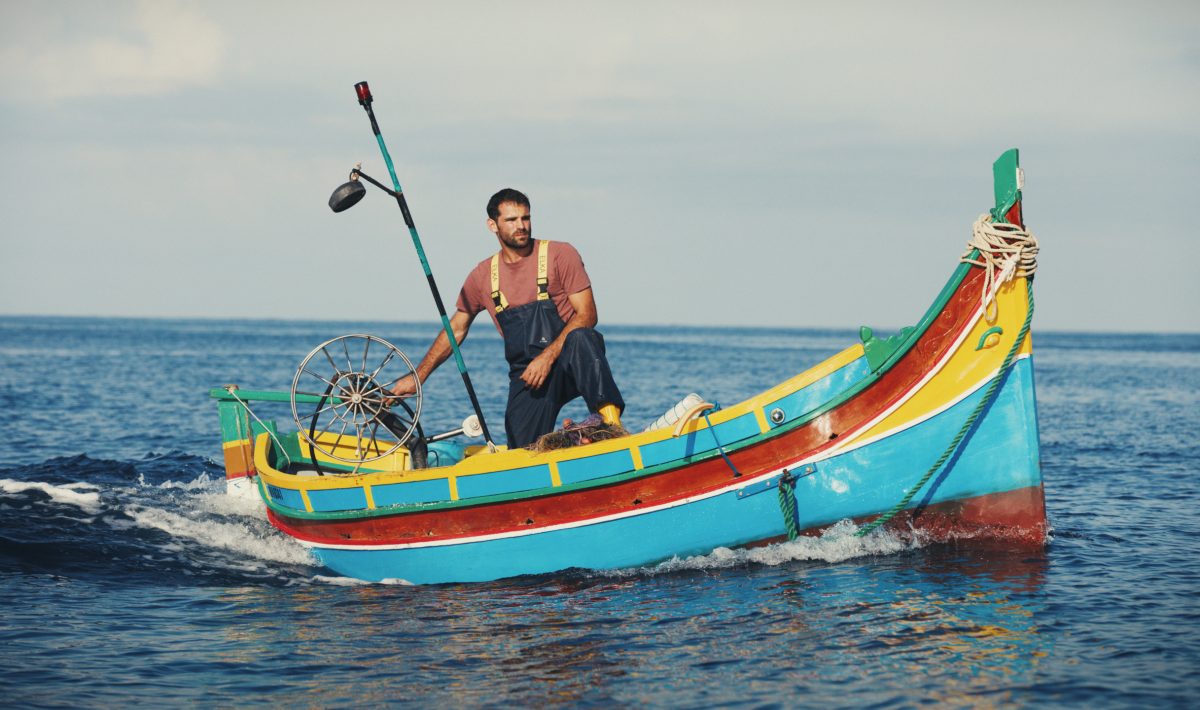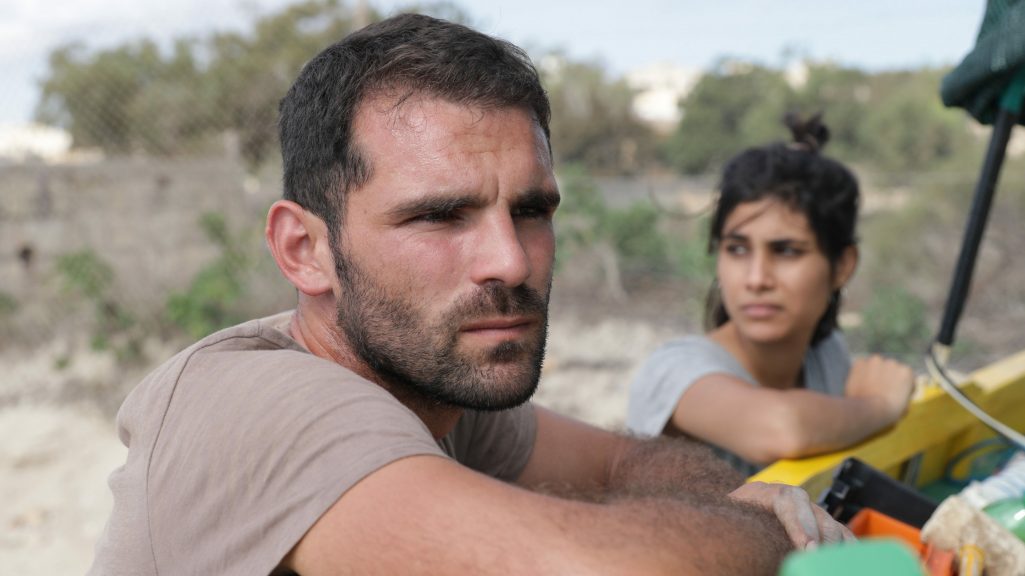The effects of the climate catastrophe rushing to break our necks are felt first not by the consumers, but by the private manufacturers, who are at the lowest level of exploitation. Those who, trying to earn a living, face not only human stupidity and greed, which brutally plow the natural environment, emptying all of its remaining treasures, but also the unrivaled great capital of food companies. A man who has lived in Malta for generations, who is faithful to fisherman’s tradition and following the example of his ancestors, is trying to support his family, can probably only let his leaky boat sink slowly. Alex Camilleri, however, does not allow his protagonist to give up like that in his full-length debut, Luzzu.
Jesmark (Jesmark Scicluna) is just such a stubborn fisherman who, faced with private problems – his newborn child does not develop properly and requires expensive therapy – must solve a life dilemma. He is to abandon his age-old, historic luzzu, a traditional, colorful, wooden fishing boat that has been in his family for generations, or he is to put everything on one card, trying to prove that he is able to bear the obligation towards the family: both financial and resulting from social pressure .
Camilleri portrays this stubborn masculinity with great subtlety, approaching his character with clear sympathy. Yes, the American-Maltese director’s neoralist picture is male-centered, both the hero’s wife, Denise (Michel Farrugia), and other women play rather episodic roles in the film. But it is not a portrait of toxic masculinity, rather one lost in the whirlwind of contemporary socio-economic processes. Jesmark is a man with simple dreams, but withdrawn, cut off from the world, he has yet to face the thought that perhaps – due to the rising temperatures which devastates Mediterranean Sea – he is the last fisherman in the family, and his little Aiden will never know the touch of salty wind on his face, or the smell of fish on his clothes, which cannot be neutralized.
Luzzu is therefore a film in which a man has to come to terms with himself and the prospect of having to change his life. He needs to question himself if the idealized family is in fact the most important in his hierarchy of values. He has to swallow his pride, which has been growing through many generations of family tradition. Camilleri shows this struggle as befits Mediterranean myths, as if Jesmark were taking fate alone on his shoulders.
It is impossible to deny the director’s careful eye when it comes to social problems, which affect all of us – after all, the climate catastrophe will not spare anyone – and the ability to work with amateur actors, who play their roles convincingly. Scicluna’s creation of a stubborn sensible man deserves special attention.
What disturbs the reception of the entire film is the relatively large capital (for the size of this film) with the support of which this fishing tale was made. Luzzu was produced by Ramin Bahrani, known for his HBO show, 451° Fahrenheit. In the case of cinema that is supposed to be completely local – Maltese films are rather rare – and a story criticizing the greed of the food industry in the background, the marriage with the American producer does not seem decent.







